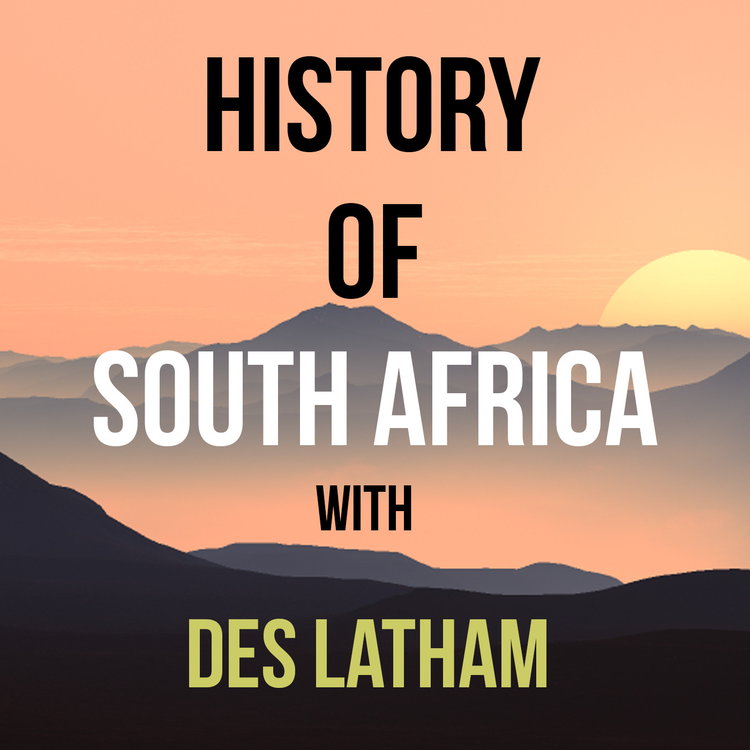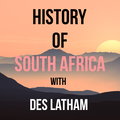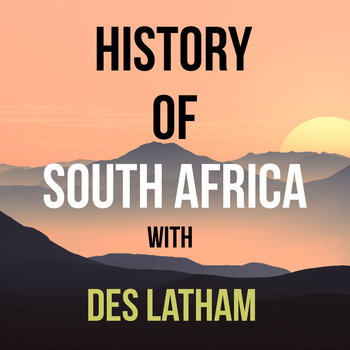
Episode 146 - The Battle of oPathe where Bhongoza and Hans Dons earn oral history stripes
Loading player...
Andries Pretorius had won a major encounter with the Zulu army, which was now in full retreat and the way to emGungungundlovu was wide open. A day after the Battle on the 17th December 1838, Commandant General Pretorius had two Zulu captives brought before him. According to Voortrekker records, he gave them a piece of white calico with his name written on it in black ink, and told them to take it to Dingana. They should inform the king that the trekkers were approaching and that he should sue for peace, and to send messengers back to start negotiations and they should carry this cloth.
Ndlela kaSompisi the general had ordered messengers on ahead of the Amabutho who were now force marching back to the east, to the Great Place. The izinceku advisors rushed back warning Dingana that he should evacuate his beloved emGungundlovu as the Voortrekkers were on their way — his army had suffered a terrible defeat.
Msiyana kaMhlana who led the imVoko Amabutho regiment had told the izinceku that the king should make for the south side of the drift across the white Mfolozi, to a place called emVokweni.
IT was one of his larger homesteads, and gave him the option to make a loop north if pursued.
It was a day later that another messenger hurried up to Dingana and told him as he hunkered down at emVokweni that Pretorius and his WenKommando had arrived at the Mhlatuze River, and was about to cross. The Zulu king ordered that his beloved emGungundlovu be raised to the ground, along with two other large amaKhanda nearby.
On the morning of the 20th they saw emGungundlovu in the distance, wreathed in smoke, much of it still burning. It was a vast complex, the fire would burn for days. About half an hours ride away, they stopped once more and formed a laager near the place of death, KwaMatiwane. At that point they were unaware that the bones of their comrades were lying in the open only a short distance away.
The trekkers began to loot what they could from the smoky ruins of Dingana’s great place, and there was a great deal that had survived the fire. First however, they were determined to find out where the colleagues lay.
One of the men found Retief’s leather briefcase and peered inside. This is where the story is disputed by some historians because the Boers pulled out a document, the treaty apparently ceding Natal to the trekkers.
I have explained how this document is of historical interest, but utterly irrelevant in the debate about land in Natal. Dingana as you know by now, had signed it to pacify Retief, to lull him into his final meeting where the Zulu king had managed to convince the Boers to leave their guns outside, only to be murdered.
It was a chance discovery on Christmas Day that almost brought calamity to this WenKommando.
Pretorius was suffering from the wound he’d received at the Battle of Blood river, but was alert enough to interrogate a man who’d been discovered hiding close to their camp at emGungundlovu.
This was no ordinary man however, he was a decoy. Bongoza kaMefu of the Ngongoma people had realised that the trekkers were after the king’s cattle, and their determination to seize the property booty of this entire campaign could be their undoing.
Bongoza approached Dingana and suggested a plan to lure the Kommando onto the thornbush veld around the White Mfolozi, where they’d be susceptible to ambush. Nzobo kaSompithi who had rejoined the king’s main retinue agreed.
Ndlela kaSompisi the general had ordered messengers on ahead of the Amabutho who were now force marching back to the east, to the Great Place. The izinceku advisors rushed back warning Dingana that he should evacuate his beloved emGungundlovu as the Voortrekkers were on their way — his army had suffered a terrible defeat.
Msiyana kaMhlana who led the imVoko Amabutho regiment had told the izinceku that the king should make for the south side of the drift across the white Mfolozi, to a place called emVokweni.
IT was one of his larger homesteads, and gave him the option to make a loop north if pursued.
It was a day later that another messenger hurried up to Dingana and told him as he hunkered down at emVokweni that Pretorius and his WenKommando had arrived at the Mhlatuze River, and was about to cross. The Zulu king ordered that his beloved emGungundlovu be raised to the ground, along with two other large amaKhanda nearby.
On the morning of the 20th they saw emGungundlovu in the distance, wreathed in smoke, much of it still burning. It was a vast complex, the fire would burn for days. About half an hours ride away, they stopped once more and formed a laager near the place of death, KwaMatiwane. At that point they were unaware that the bones of their comrades were lying in the open only a short distance away.
The trekkers began to loot what they could from the smoky ruins of Dingana’s great place, and there was a great deal that had survived the fire. First however, they were determined to find out where the colleagues lay.
One of the men found Retief’s leather briefcase and peered inside. This is where the story is disputed by some historians because the Boers pulled out a document, the treaty apparently ceding Natal to the trekkers.
I have explained how this document is of historical interest, but utterly irrelevant in the debate about land in Natal. Dingana as you know by now, had signed it to pacify Retief, to lull him into his final meeting where the Zulu king had managed to convince the Boers to leave their guns outside, only to be murdered.
It was a chance discovery on Christmas Day that almost brought calamity to this WenKommando.
Pretorius was suffering from the wound he’d received at the Battle of Blood river, but was alert enough to interrogate a man who’d been discovered hiding close to their camp at emGungundlovu.
This was no ordinary man however, he was a decoy. Bongoza kaMefu of the Ngongoma people had realised that the trekkers were after the king’s cattle, and their determination to seize the property booty of this entire campaign could be their undoing.
Bongoza approached Dingana and suggested a plan to lure the Kommando onto the thornbush veld around the White Mfolozi, where they’d be susceptible to ambush. Nzobo kaSompithi who had rejoined the king’s main retinue agreed.

